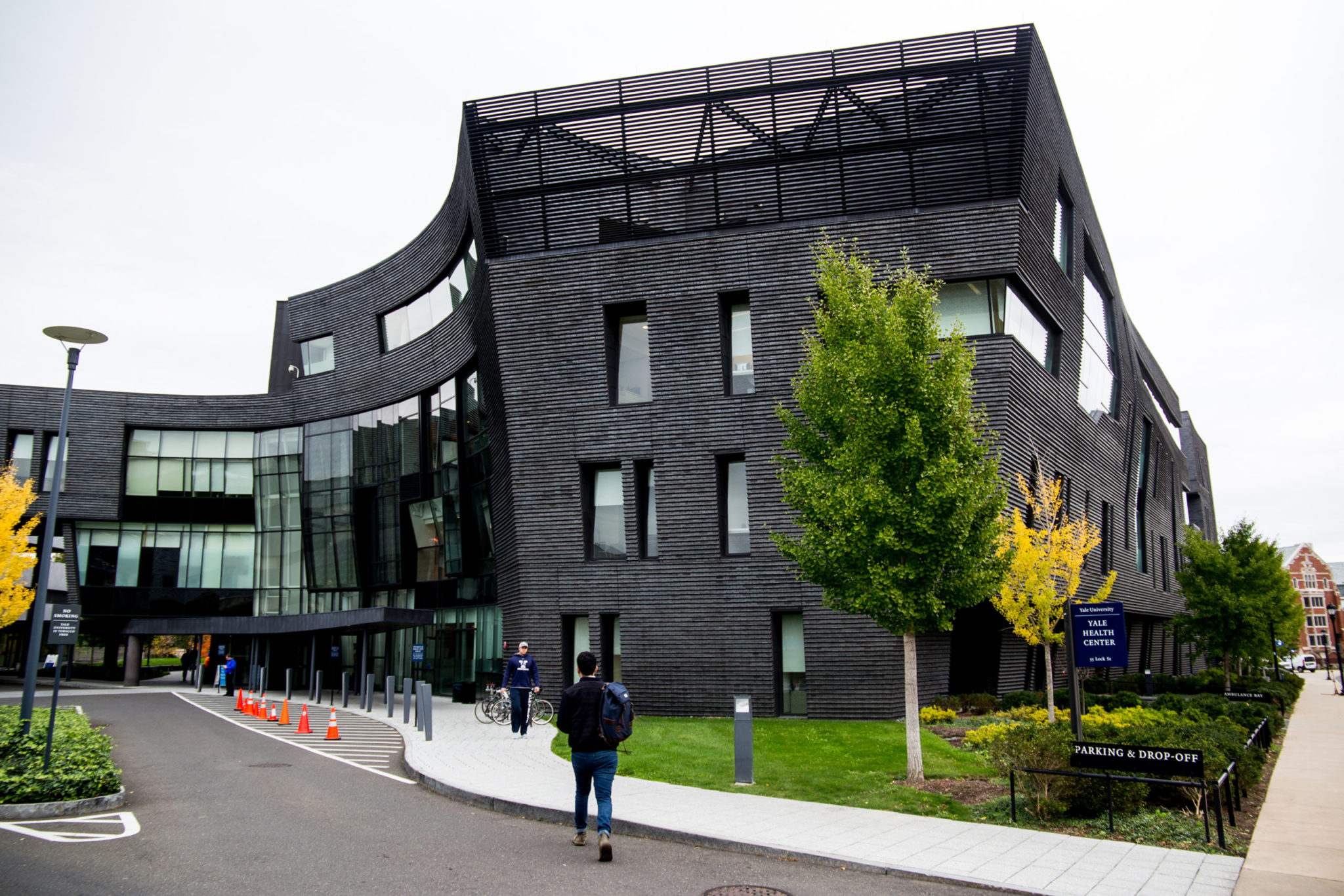Genecin, Chen to depart from Yale Health
The two administrators helped steer the University’s healthcare facility through the COVID-19 pandemic.

Lucas Holter
The University’s healthcare facility is bidding farewell to two top administrators who helped steer the department through the COVID-19 pandemic.
Paul Genecin, Yale Health’s chief executive officer, will step down in January 2023. His retirement, announced via a University-wide email in August, comes after more than four decades of service in various roles at the center. Since taking the helm in 1997, Genecin has overseen Yale Health’s implementation of electronic medical records, the opening of its facility at 55 Lock St., and the launch of Yale College Community Care (YC3).
Chief of Student Health Christine Chen also stepped down from her role on Sep. 29. Chen’s departure follows four years at Yale Health, during which she spearheaded the facility’s COVID-19 response and policies on contact tracing, vaccination compliance and testing. She will resume inpatient care at Yale New Haven Hospital.
Chen described her role at Yale Health as the highlight of her career.
“Inpatient internal medicine is where I started, and there is great need at the hospital right now,” Chen told the News. “I look forward to rejoining my colleagues there soon.”
Chen said she is proud of the work she and her colleagues have done in student health, which she said was just one branch of Yale’s “incredible infrastructure to support its students.” She added that many of her colleagues came out of retirement to help as the pandemic started, and “will not be too far” from student health.
Yale Health will now be overseen by an interim leadership structure while the national search for Chen’s replacement is underway.
Both Genecin and Chen’s departures present an uncertain future for Yale Health just as the facility shifts out of pandemic-era protocols. On Wednesday, University President Peter Salovey announced the formation of a search committee for Genecin’s replacement.
The committee will include both faculty and student representatives: the Yale College Council, Graduate Student Assembly and the Graduate and Professional Student Senate are set to nominate five candidates each to Salovey, who will then choose two from each group to serve on the council.
“Given the role Yale Health plays in the lives of so many, I have asked the search firm and the search advisory committee to solicit broad input from the Yale community,” Salovey wrote in a university-wide email.
Stephanie Spangler and John Whelan, who will co-chair the committee searching for Genecin’s replacement, wrote to the News that the committee is “eager for input from the community.” Both noted that they hoped to find a leader who “takes advantage of Yale Health’s unique features” as well as its relationships to the University community.
Also appointed to the committee was Howard Forman, professor of radiology and biomedical imaging. He described Yale Health as an “incredibly well-run organization” and said he looks forward to working with students on the committee.
Students, meanwhile, have vocalized mixed opinions on their experiences at Yale Health.The organization has come under recent criticism for its services, especially in regard to mental health care. Last week, students raised concerns over treatment at Yale Health when sick with non-COVID related illnesses.
The Yale College Council, or YCC, told the News that they have had conversations with students about Yale Health and encouraged students to heed Salovey’s invitation.
“We have heard various student issues ranging from getting appointments with ease to the flexibility of their insurance when covering Yale Health services,” YCC President Leleda Beraki ’24 and YCC Vice President Iris Li ’24 said in a joint statement to the News.
J. Nick Fisk GRD ’23, who serves as president of the Graduate and Professional Schools Senate told the News that he planned to draw from professional students’ broad range of expertise in selecting the representatives — including from the medical and nursing schools as well as the School of Management, Law School and the Jackson Institute.
Fisk added that he believed that graduate and professional student involvement in committees at Yale sees “mixed efficacy” and depended on the culture and composition of the committee. At times, Fisk said, committee representatives report back feeling as though their contributions were welcomed and valued. At other times, they report back feeling relatively uninvolved and unvalued.
“I’m hopeful that Salovey taking the affirmative step to include student voices bodes well in this case,” Fisk said.
In addition to Spangler, Whelan and Forman, Salovey’s committee will include Dean of Student Affairs Melanie Boyd and Enrique De La Cruz, who serves as head of Branford College.







